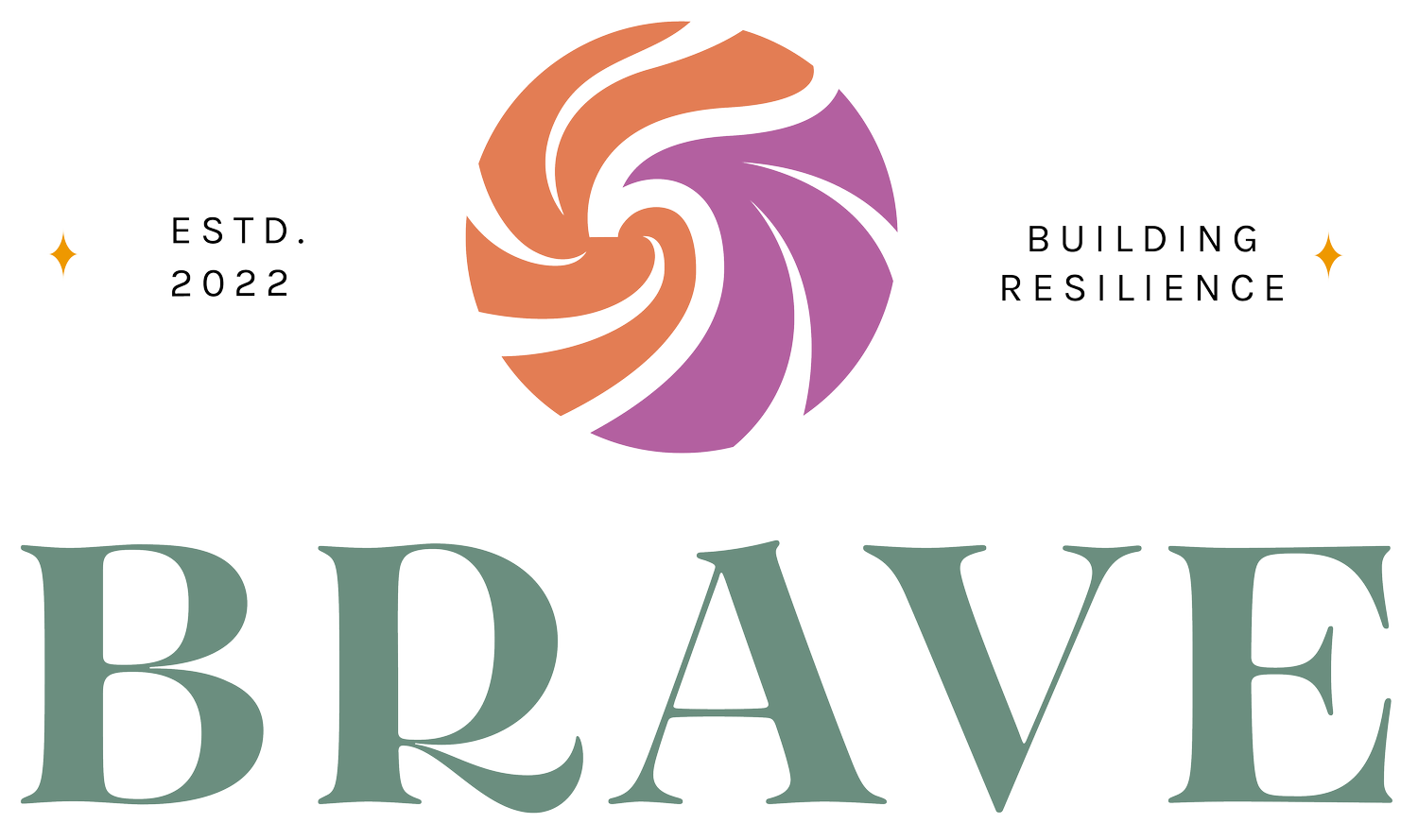You Can’t Pour From an Empty Cup-Trauma Work Was Never Meant to Be Done Alone
Some days, you leave your office feeling like a ghost of yourself.
You’ve held space for client after client, absorbed stories of deep pain, made SO MANY clinical decisions—all while holding yourself together.
But when the workday ends and you slam the laptop shut for the day, the work doesn't just disappear. No matter what they taught you in grad school or supervision about "leaving work at work", you know it's not an on and off switch.
This is the part no one warned you about: that being a trauma therapist requires you to be so deeply human and never a robot. And yet, too many trauma therapists are doing this work alone, carrying a weight that was never meant to be held in isolation, believing they "shouldn't" be affected.
In this week's BRAVE Blog, we’re talking about why isolation fuels burnout faster than overworking, how nourishing professional communities can help, and how to find (or build) the kind of support that sustains you—so you don’t have to keep doing this alone.
The Hidden Danger of Doing Trauma Work Alone
Most therapists think burnout comes from being too busy, seeing too many clients, and managing a caseload that is "too intense." But research shows that isolation is also a major predictor of burnout for trauma therapists.
What that means is that when no one is holding space for you, it changes how you show up in your work. You start second-guessing yourself more than usual. Sessions feel heavier, like you’re trudging through them instead of flowing. You catch yourself wondering, Am I even helping?
The work that once fueled you now feels like a weight you can’t put down.
Burnout isn’t the same thing as exhaustion—it’s what happens when the emotional load of this work has nowhere to go.
Not All Professional Spaces Are Actually Supportive—Here’s What Makes the Difference
Many therapists technically have professional relationships but still feel completely alone. Some spaces leave you feeling judged for being honest about your struggles (oh hello social media...), unsupported when you ask for guidance (we're supposed to be perfect?!), or just drained instead of refueled.
The best professional spaces don’t just give you colleagues to talk to—they actually sustain you.
You need a space where you can just be human. A space where conversations don’t just revolve around cases, but also acknowledge how this work affects you. A space that reflects back your strengths, reminding you of your impact instead of just your stress. A space that challenges you to grow—not just in clinical skills, but in ways that support you as a human.
If a space leaves you feeling more exhausted than when you walked in, it’s not the right one for you.
How to Build a Professional Support System That Actually Sustains You
Community doesn’t just happen—you have to choose it, you have to take action.
If reading this is making you realize you don’t have the support you need, start by assessing your current professional relationships:
Who in your life do you feel fully seen by?
Who energizes you, and who drains you?
If the spaces you’re in leave you exhausted instead of supported, you don’t have to stay in them.
Seek out communities that align with your values, where connection is about real support—not just surface-level stuff.
And if you don’t know where to start, start small:
Check in with a trusted colleague.
Join a consultation space that prioritizes connection, not just client outcomes.
Take even small steps toward connection—they can make all the difference.
Final Thoughts: You Deserve Support, Too
Healing happens in relationship—not just for clients, but for therapists, too.
Seeking support isn’t weakness—it’s sustainability.
I know how counterintuitive it can feel to need support in a profession built around giving it. But if you’re feeling alone in this work, it doesn’t mean you’re weak—it means you’re human.
Finding a space where you can be supported as a therapist and as a human shouldn’t feel impossible. You deserve a professional community that truly sees you, one where you can show up exactly as you are and receive the same level of care you so often give to others.
BRAVE was built for this—to be a space where trauma therapists can connect, be refueled, and continue doing the work they love without feeling like they have to carry it all alone.
So if you’re ready for a professional space where you can show up as your full self—without extra demands, without judgment—BRAVE is here.
Because trauma work was never meant to be done alone. And you don’t have to anymore.






